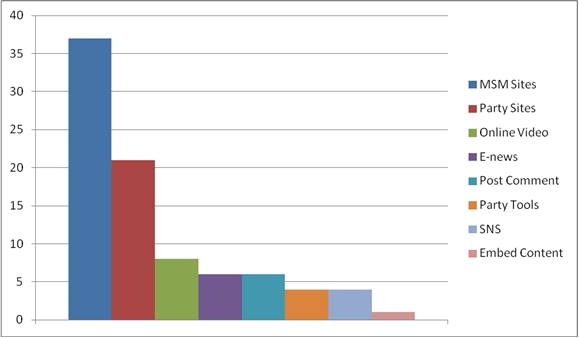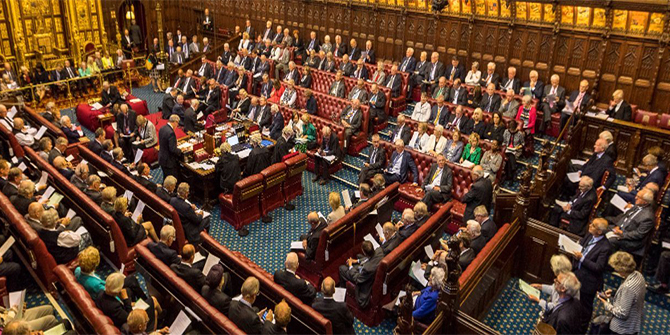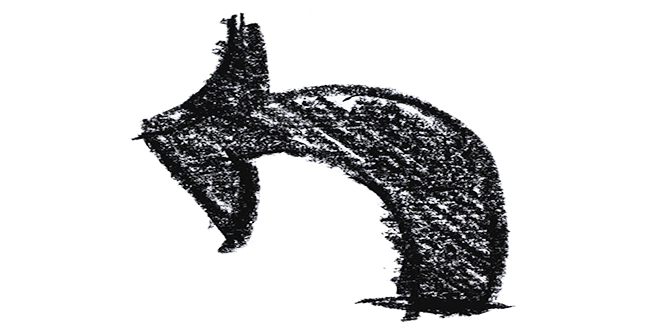
 Predictions that an upcoming national election will be ‘the’ internet election have been circulating in the UK and other advanced democracies since the late 1990s. Rachel Gibson and Marta Cantijoch study the UK’s general election in 2010 and find that while e-campaigning still lagged behind traditional media and mobilisation tools, there is reason to believe the internet will play a much larger role in the 2015 election and politics more generally.
Predictions that an upcoming national election will be ‘the’ internet election have been circulating in the UK and other advanced democracies since the late 1990s. Rachel Gibson and Marta Cantijoch study the UK’s general election in 2010 and find that while e-campaigning still lagged behind traditional media and mobilisation tools, there is reason to believe the internet will play a much larger role in the 2015 election and politics more generally.
In the run-up to the UK’s 2010 general election, speculation was again rife that the internet would play a key role. The British media anticipated that online sources would help shape and even lead the campaign agenda, that the electorate would discuss and debate issues through social network tools and virtual spaces and that parties and candidates would exploit new technologies to mobilise votes, especially among younger people.
Within a couple weeks of the 2010 campaign starting, however, the internet was already being written off as a campaign medium by the same papers that had previously celebrated its merits. Commentators queued up to declare that rather than witnessing the internet election, we were in fact being treated to the television election, dominated as it was by the TV debates and ‘Clegg-mania’. The narrative quickly became one in which the internet played little role in the campaign apart from acting as an echo chamber to the mainstream media. One prominent blogger even declared social media tools ineffective for campaigning given their lack of reach beyond the usual activist suspects. In the space of a few short weeks, the internet had moved from a leading actor in the election campaign production to a second string supporting act. Notably, however, little hard evidence was produced in support of these claims. Furthermore, definitions of precisely what an internet election should look like, and how we could know one if we saw one, were thin on the ground.
Project CODE, based at Institute for Social Change at the University of Manchester, attempted to tackle these questions (amongst others) and assess whether 2010 was ‘an,’ if not ‘the’ internet election. We gathered original data to examine both citizen involvement in the online campaign and the views of e-campaign managers on the merits of a range of voter communication channels used by the parties during the election. Overall our findings can be seen to confirm the general view that the 2010 campaign was another ‘false dawn’ in terms of expectations for a web dominated experience. According to our opinion survey of almost two thousand people conducted a few weeks after polling day, the majority of voters did not undertake any electorally related internet activity. As figure 1 shows, those who did mostly favoured passive types of engagement such as visiting mainstream media sites (MSM) and watching YouTube videos, rather than producing their own political content or actively helping candidates mobilize undecided voters.
Engagement in the 2010 e-campaign (% internet users)

Source: BMRB Survey, N = 1,456 20.05.10-26.05.10
Compared with findings from the 2008 US presidential election, where over half of the population undertook some e-election related activity, our results look decidedly more limited. On the ‘supply side’ the picture was also somewhat uninspiring. Most parties still rated the traditional voter communication tools like face-to-face canvassing as the ‘gold standard’ for mobilizing the electorate. Of the various web options available to them, the parties preferred the official websites, emails and e-news letters over the more interactive social media applications such as blogs and Facebook.
Beneath these headline findings, however, some shards of optimism punctuate the gloom. By 2010 the hype surrounding the internet had reached dizzying proportions and made it unlikely that it could ever live up to expectations. Furthermore, the media coverage of the resurgence of television as an election medium bears testimony to the widespread perceptions of its essentially moribund status compared to new media.
And although engagement in e-politics still proved to be minority pursuit, a Hansard Society report showed one in three did undertake some type of electorally relevant activity on the web, a doubling of interest since 2005. Those looking at official campaign information increased dramatically, rising to around 15 per cent of the population – a five-fold increase on 2005. Some of the growth of interest in the e-campaign must be attributed to heightened interest in the election due to the unusually close race and the unexpected success of the live TV leader debates. There was a strong suggestion that the leaders debates drove traffic online, particularly in terms of commentary in the ‘twitterverse’.
Beyond this effect, however, breaking these results down by age shows that the internet has become the medium of choice for young people searching for information. Evidence from our survey indicates that even among older citizens the internet is fast becoming a part of their everyday news experience. These results suggest that the internet’s electoral relevance is likely to grow rapidly and lose its ‘minority’ status by 2015.
In terms of more activist types of online participation, i.e. beyond news consumption, the internet clearly remains the preserve of a narrow group of younger, male, educated individuals. Even here, however, some intriguing details emerged. There are now a group of voters who participate only in the online political environment, suggesting either that some are substituting offline participation for virtual activism or that there is a small e-mobilisation effect.
While the parties for the most part believe the tried and tested offline campaign tools outperform their online counterparts, the growth in the parties’ enthusiasm for all things digital, and the importance attributed to the new methods is in marked contrast to the early days of web campaigns. Minor parties in particular place a high premium on online tools, putting them almost on a par with traditional techniques. The major parties were generally less enthusiastic about the merits of e-campaigning, although the Conservatives did stand out for their interest in the web and social media.
Despite the fact that our results do not provide strong support for the claim that the UK finally witnessed ‘the’ internet election in 2010, we cannot write the internet off as having little consequence for campaigning. Indeed the signs are that by the next election the internet is likely to have lost its ‘novelty’ status and become a mainstream medium. If so, then we can look forward to a move beyond the cycle of hype, hope and dashed expectations that has come to dominate election reporting narratives to date and look more realistically at the more ‘subtle’ and everyday ways in which the internet is being incorporated into daily political life.
Please read our comments policy before posting.








2 Comments